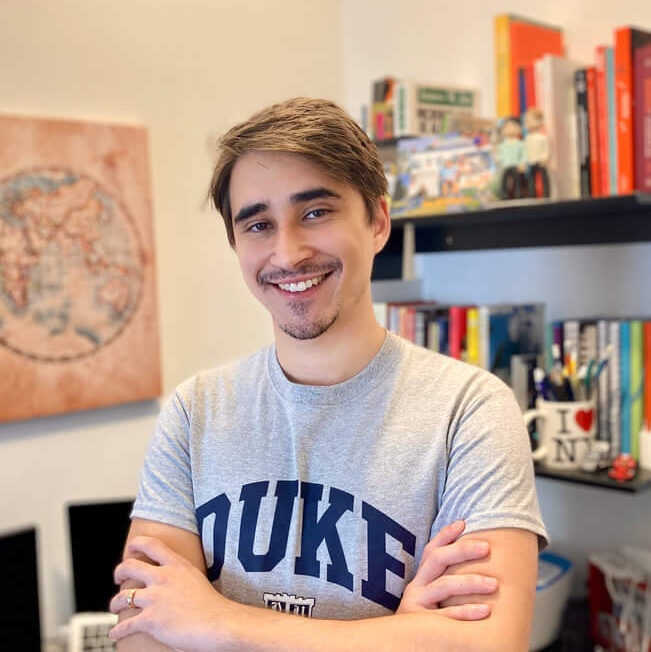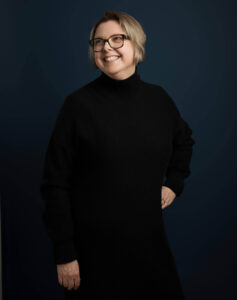My name is Marco. I am 26 years old and a first-year PhD student in Molecular Genetics and Microbiology at Duke University. I am not going to lie, at first being rejected from Harvard was devastating; however, this rejection was probably the best thing that ever happened to me. In this article, I will share my journey in applying to PhD programs in the US as a Brazilian student.
Let’s begin with a little bit of context. First, I majored in Food Engineering at the Federal University of Viçosa, Brazil, and during this time, I also studied Biotechnology in France. I did one year of courses, and an internship, at the University of Lorraine, where I finished at the top of my class, and I was approved for three fully funded master’s programs. After that, I decided to pursue a masters in Genetics and Molecular Biology at the State University of Campinas, Brazil. However, despite studying at top universities and having +5 years of research experience, and five published articles at the time, I was still rejected from Harvard University.
In May 2021 I applied for the prestigious Fulbright scholarship, and about 15 Brazilians, myself included, were awarded this scholarship for that year. This scholarship includes three years of funding for pursuing PhD studies in the US. However, the average time for a PhD completion in the US is around five years, so we still have to be funded by our hosting university. Even so, we had nearly half the cost of our entire PhD funded by Fulbright. In addition, the 15 of us were highly competitive applicants. We all had research experience, most of us had a master’s degree, some of us had published articles, and we were all proficient in English. So, in summary, we were the perfect candidates.
After receiving the approval from Fulbright, we received a list of all the universities eligible to us. Though, we could only apply to five R1 universities in the US, which account for around 100 universities. So, I first accessed the websites of all 100 universities to check if their PhD programs and research areas would be a fit for me. Then, before finally deciding which universities I would apply to, I spoke with more than 20 PIs from 15 universities on that list. Ultimately, I decided to apply to Duke University, Cornell University, the University of Maryland (UMD), Ohio State University (OSU), and Harvard University.
The application for all the universities was pretty much the same: a statement of purpose, including my trajectory and motivations on why I was applying to that specific university and program; three letters of recommendation; and an elevated score on and internationally accepted English test. My application was nearly perfect; my statement of purpose was highly insightful, it contained essential points of my trajectory and very cohesive reasons for why I was applying to each one of the programs. I had recommendation letters from my previous advisors, with whom I had fantastic relationships, and showed unique research skills. In addition, my TOEFL score was several points above the minimum limit requested for the application.
On the other hand, I knew that everyone applying to such programs at these universities were also highly competitive. Still, I knew that probably none of them would also have the Fulbright funding. Thus, I was a highly skilled applicant coming with external financing; so why would I not even be considered for admission?
By December 20th, all interview invites from Harvard were already sent, but I have not received anything, not even a rejection. So, I emailed the Director of Graduate Studies from the program, but I did not hear back from him. Nonetheless, I was invited to interview with Duke, then UMD, OSU, and Cornell, in that order. Both UMD and OSU were located in highly developed regions, whilst Washington (DC) and Columbus (OH) are regions with several scientific conferences and research-focused public or private organizations. Now, Cornell had a prokaryote-focused program, and I love prokaryotes. In addition, the courses, the research area, and the facilities were exactly what I wished for. However, it was Duke that actually blew my mind.
I actually had my first interview with Duke, and I was surprised that literally all of the current PhD students had so many nice things to say about the university, the Raleigh-Durham (NC) metropolitan area, and the faculty from the MGM department. In addition, I would have opportunities to earn additional certifications, such as a certificate of college teaching and, most surprising, to apply to the Duke Scholars in Molecular Medicine (DSMM) program. Furthermore, I study infectious diseases, and the DSMM program puts us in contact with medical doctors to investigate cases with actual patients inside the hospitals. So, even though I would still interview with the other three universities, Duke was a definitive highlight.
Though, before finishing my PhD applications, Harvard was my obvious first choice. Such a prestigious university, a PhD program with PIs with research areas precisely in what I wanted to study, and a university located in the Boston metropolitan area, basically the place for Biological Sciences. I confess that I was still hoping to receive a late interview invite. However, at this point, I realized I would not receive an invitation.
In fact, I was accepted to four programs before getting this official rejection: (i) Molecular Genetics and Microbiology at Duke University on January 21st; (ii) Biological Sciences at the University of Maryland also on January 21st; (iii) Microbiology at Cornell University on February 24th; and (iv) Microbiology at the Ohio State University on March 1st. So, how could I be so sad and angry about being rejected by only one of the universities I applied to?
Well at first, I was devastated. In my mind, I was thinking, “How could I not even get a call for an interview?”. Though it all got better with time, and the official rejection from Harvard came on March 7th. But by the time I received it, I was finally at peace with their decision. In conclusion, this entire process showed me a few things.
• First, you should never decide on your PhD preferences before attending interviews.
There is always a lot more to learn about universities from interviews than from what a website can tell you.
• Second, rejection is part of the process. It is not personal, and it does not mean that you are not worthy.
• Third and most importantly, a PhD is a long-term commitment, and there are way more important things than a university name and prestigiousness: the opportunities you have, the PI you are advised by, and the research skills you gain.
These will all count more towards your next career step, so today I can easily say that being rejected from Harvard was the best thing that ever happened to me.






